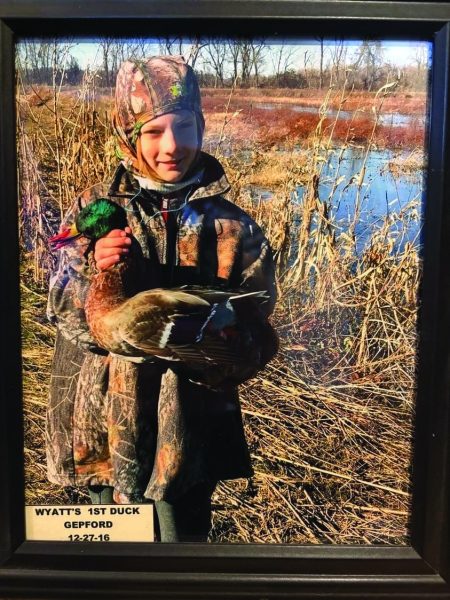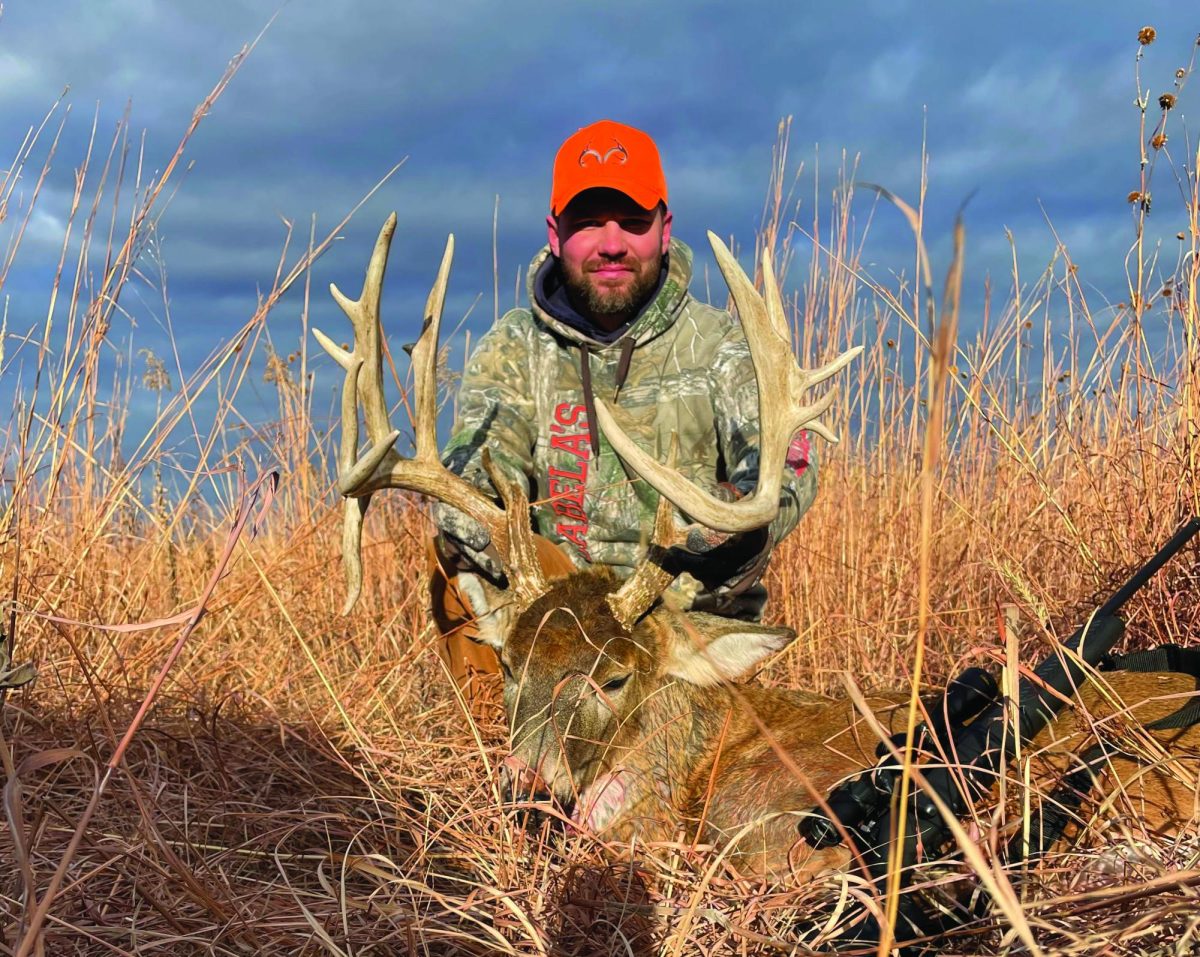For thousands of years across the world, humans have been hunting animals. In Kansas, like many other Midwestern and Southern states, there are many avid hunters. Teacher Jonathon Jost and senior Wyatt Davidson discuss their experiences with hunting.
Jost has been familiar with the practice from a young age.
 “I probably went for the first time with my dad when I was 5,” Jost said. “I went through hunter safety course when I was 10, and so I actually started carrying a gun when I went along with my dad.”
“I probably went for the first time with my dad when I was 5,” Jost said. “I went through hunter safety course when I was 10, and so I actually started carrying a gun when I went along with my dad.”
Similarly, Davidson also started hunting early.
“[I have hunted] since I was like 5,” Davidson said. “I didn’t get a real gun — I got a BB gun and then a shotgun. My papa, who is my mom’s dad, has always taken me. [He] took us to share his hobby and spend time with us.”
Davidson enjoys it due to the connection it forms with his family.
“It gives me and my papa something to do together that we can bond over,” Davidson said.
Jost thinks the custom is embedded in many places’ societies.
“Not everybody does, but I would consider it part of the culture, especially in rural areas,” he said. “My dad grew up in rural areas — part of [that] culture is hunting.”
Jost derives satisfaction from many parts of the process.
“I enjoy it because of the thrill of the chase. It is a chase — it’s a competition. I also think I enjoy it because I grew up watching my dad go hunting. He was passionate about it,” Jost said. “If I’m bird hunting, I like seeing dogs work — my dog’s a hunting dog.”
His hobby has led him to many places.
“I spend a lot of the time in central Kansas around my family farm — some water fowl I do around here,” Jost said. “Over Thanksgiving and Christmas breaks, I usually go down to Texas to hunt because my father-in-law has a deer lease there.”
Students who have had Jost are familiar with his disappearance toward the end of the first semester.
“Usually in late November [or] early December, Kansas rifle season for deer opens the first Wednesday after Thanksgiving,” Jost said. “It’s open for 11 days. That’s why I take off to go then. It’s only two weekends.”
Davidson believes hunting is justified as long as it’s not wasteful.
“I do not think it [is wrong] when the hunter is going to eat their game. If they eat the animal after, I think that it is the same, if not better, morally than getting a chicken from the store that lived in captivity its whole life,” Davidson said. “I think to hunt for sport is perfectly OK as long as you plan to eat what you get. If you discard of the bodies afterward, you are disregarding nature and it’s cruel.”
Jost said the practice has connected him to his food.
“As long as I’m bird hunting or deer hunting, I eat them,” Jost said. “I see the animal from the field to my plate. I see every part of that process.”
Jost believes hunters’ dedication to environmental awareness can be overlooked.
“I think people don’t like hunting for the humane aspect — they think it’s inhumane — [but] hunters are oftentimes the most humane people,” Jost said. “They care more. They probably care more about the animals than anybody else.”
Jost does acknowledge that not everybody who partakes in hunting has animals’ interests in mind.
“Not all hunters — some have bad intentions. People just go out and just kill, kill, kill. I think that’s awful. That makes me angry,” he said. “Most hunters care deeply about the animals. Hunters are the leading proponent of conservation. As a hunter, I care about conservation.”




